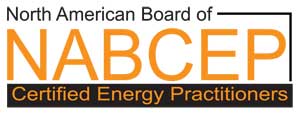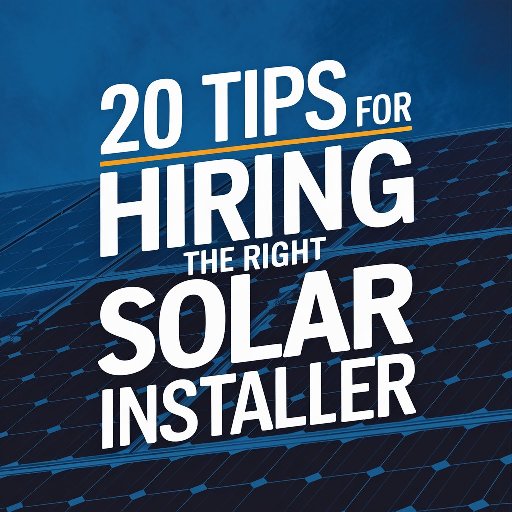
Deciding to install solar is an exciting step toward energy independence and environmental stewardship, and choosing a reliable solar installer is one of the most important decisions you’ll make in this process.
A quality installation translates to decades of reliable, clean energy, while poor workmanship can lead to expensive repairs, safety issues, and reduced returns on your investment.
Solar Insure has dedicated nearly 20 years to reviewing, underwriting, and certifying contractors who meet our high standards of professionalism. We’ve worked with over 500 solar installers in that time, gaining an expert sense of the differences between successful installers and those who fall short.
By analyzing the factors behind the success stories—and the failures—we’ve created clear, reliable guidelines to help homeowners like you make smart, confident decisions.
We’ve provided you with 20 great tips for choosing a reliable solar company that exceeds industry standards and will set you up for a terrific solar experience.
1. Years in Business
Experience matters. Look for a contractor with a proven track record in the solar industry. Companies that have been active for several years have mastered the complex art of solar installations and established relationships with suppliers and manufacturers. Longevity often reflects reliability, stability, and a history of customer satisfaction.
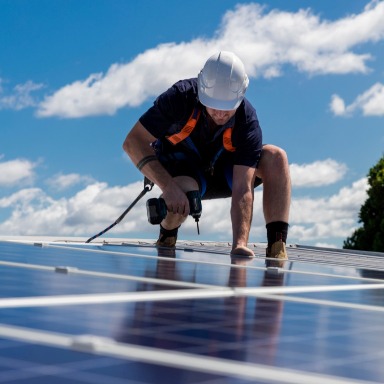
Note: Longevity is also tied to the viability of their workmanship warranty. A three-year-old company that offers a 25-year warranty may be less desirable than a company with 15 years of experience that offers a 10-year warranty. The well-seasoned company is more likely to be around to honor their warranty.
2. Leadership Team’s Years of Industry Experience
The expertise of a company’s leadership team is a major factor in the quality of service you receive. Find out how many years the owners and executives in the company you’re considering have worked in the solar sector. Leaders with extensive industry experience are more likely to know about the latest technologies, best practices, and component changes.
Tip: Look for companies whose leadership has a strong construction background rather than those led by people with only sales experience. You can typically find further information about the ownership on the company website’s About page or on LinkedIn.
3. Licenses and Certifications
Verify that the contractor has all the required licenses to operate in your location. Depending on regional regulations, this may include an electrical contractor’s license or a general contractor’s license. Also, look for certifications from reputable organizations like the North American Board of Certified Energy Practitioners (NABCEP). These credentials indicate advanced training, expertise, and compliance with industry standards.
For instance, in CA, a solar company may have one or a combination of several different licenses, including C-46 Solar, C-10 Electrical, or B license.
State Licensing Resources:
- California: Contractors State License Board (CSLB)
- Texas: Texas Department of Licensing and Regulation
- Florida: Department of Business and Professional Regulation
- New York: Division of Licensing Services
- Pennsylvania: Home Improvement Consumer Protection Act
- Illinois: Department of Financial and Professional Regulation
- Arizona: Arizona Registrar of Contractors
- Nevada: Nevada State Contractors Board
- New Mexico: New Mexico Construction Industries Division
- Massachusetts: Home Improvement Contractor Registration
4. Legal Proceedings or Sanctions
A contractor’s legal history can give you valuable insights into their business practices.
Research any past or ongoing legal proceedings, lawsuits, or sanctions against a company. A clean legal record suggests the contractor is ethical and complies with industry regulations.
5. Compliance Violations
Compliance with industry regulations is non-negotiable! Look into whether the contractor has had any regulatory compliance violations like fines or government penalties. These breaches might indicate negligence or a disregard for industry standards, which could compromise your installation’s safety and legality.
Make sure the contractor complies with all local, state, and federal solar installation rules, including building codes, electrical codes, and zoning laws. Non-compliance can lead to fines, delays, or even the removal of your system.
Tip: You can check for violations through your local contractor license boards.
6. References and Performance Data
When you’re vetting a solar provider, request references from previous customers in your area. Ask their past clients for a candid evaluation of the customer experience, including quality of service, communication, and overall satisfaction. A provider who is willing to connect you with local references is confident in their work and values transparency.
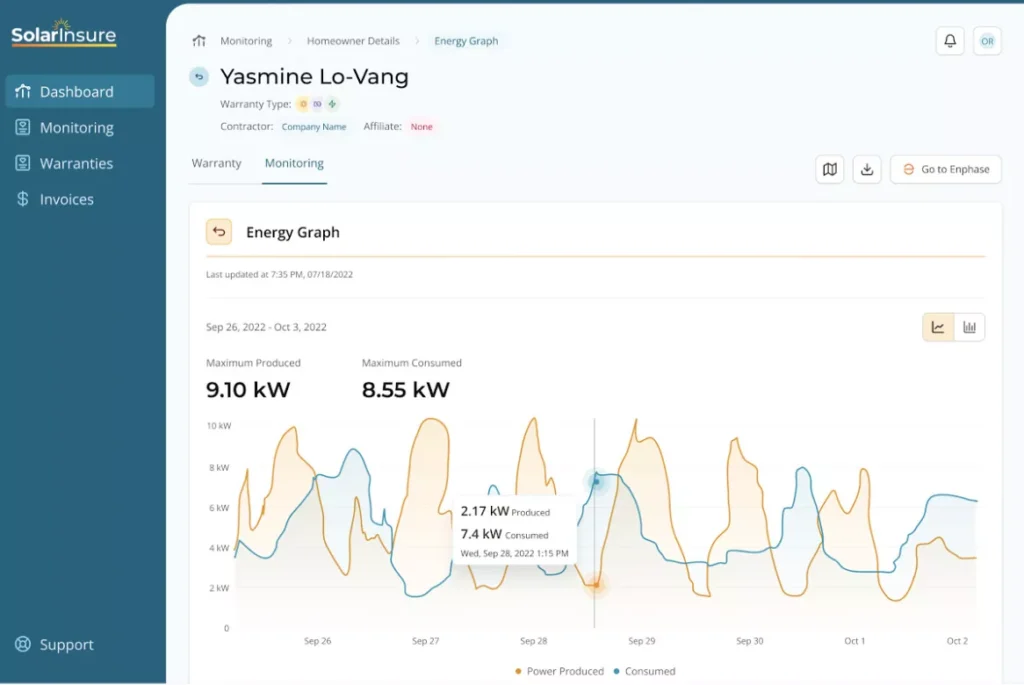
As well as references, consider requesting actual production data from similar installations in your area. Comparing expected production to actual results shows how well the provider predicts system performance and whether their installations consistently deliver as promised. This information helps you choose a provider with a history of reliable installations
7. Customer Google & BBB Reviews
Online reviews give you firsthand accounts of customer experiences. Check the contractor’s Google reviews to gauge overall satisfaction levels. Pay attention to comments about workmanship, professionalism, communication, and post-installation support. Unfailingly positive reviews are a strong indicator of good service.
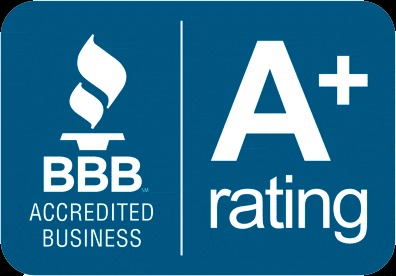
The Better Business Bureau (BBB) tracks complaints and resolutions between consumers and businesses. Review your potential contractor’s BBB profile to unearth customer complaint patterns (if any) and see how the contractor addressed them. A high BBB rating and a low number of unresolved complaints are good signs of trustworthiness.
8. Sales Team Structure
When selecting a solar provider, you’ll need to understand that some companies operate as sales dealers, while others handle installations directly. Sales dealers often partner with third-party installers, and the connectivity level between the sales team and the installer can vary widely. Homeowners should ask about the relationship between the salesperson and the installer to make sure everything runs smoothly. A clear and reliable partnership can make communication easier and improve the overall experience.
Also, try to work with sales representatives who focus on education over sales tactics. A knowledgeable rep committed to helping you understand your options and make wise choices is a valuable decision-making partner. Educated homeowners are empowered homeowners.
9. Insurance Status
Always request proof of the contractor’s insurance coverage, including general liability and workers’ compensation policies. Their insurance protects you from liability in case of property damage or (heaven forbid) injuries during installation. It also reflects the contractor’s professionalism and commitment to safety.
Reminder: Ask your solar installer to name you as an Additional Insured on their general liability policy. Don’t forget to add the solar installation to your homeowner’s insurance policy once the installation is completed.
10. Local Expertise
A solar contractor’s local experience impacts your installation’s success, translating into tangible benefits including faster project completion, more accurate cost estimates, and fewer unexpected complications. Local contractors can easily handle utility connection requirements, help you get the most from available incentives, and provide fast support for maintenance or emergencies.
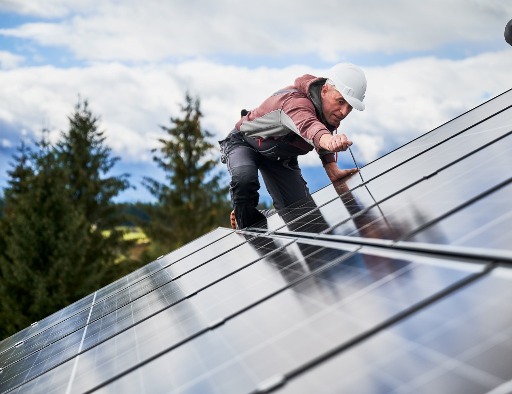
Their knowledge of local energy use and utility rates lets them design systems for the best ROI, while their long-standing presence guarantees reliable support and warranty service. Choosing a contractor with local experience means investing in a successful project and long-term system performance, backed by a partner who understands and can tackle your region’s unique challenges and opportunities head-on.
Expert Tip: Ask your potential solar installer if they’re headquartered in your state or if they have an established branch in the area. How long have they been operating there? What is their long-term commitment to servicing the area?
11. Labor & Subcontractor Usage
Understanding whether contractors use in-house teams or subcontractors tells you about their quality control processes and accountability standards.
In-house teams have advantages like direct training, consistent quality control, and clear accountability, but qualified subcontractors can bring in specialized expertise, scheduling flexibility, and additional market knowledge. Reputable contractors have strict vetting processes for all their workers, including complete background checks, license verification, insurance coverage requirements, and thorough evaluation of past performance and safety records.
12. Specialized Focus vs. Diversified Offerings
When you’re evaluating a solar installer, consider whether they specialize exclusively in residential solar or offer a broader range of services like roofing, electrical contracting, or commercial solar solutions.
Companies with a variety of services might claim experience in other sectors to appear more established, but this doesn’t always reflect expertise in residential solar. Ask about the installer’s specific experience with residential projects and whether they have a dedicated point of contact (POC) for homeowners. A dedicated POC can mean faster, more knowledgeable answers to your questions.
Companies with multiple services may be more stable during market ups and downs. However, a specialized focus and dedicated support are often necessary for a smooth and successful installation.
13. Manufacturer Certification
When selecting a perfect solar installer, you should also think about manufacturer certifications. Many reputable solar equipment manufacturers, like Enphase and Panasonic, offer certification programs and designate installer tiers like Gold or Platinum levels. These certifications indicate that the installer has had specialized training and consistently meets the manufacturer’s quality standards.
If you’re considering a specific brand, contact the manufacturer to confirm that your installer has the right certifications. This easy step confirms that you’ll be working with a fully qualified contractor to install the specific equipment you want.
14. Workmanship Warranty Terms
A workmanship warranty protects you against installation errors and defects. Review the warranty terms carefully, including duration and coverage specifics. A contractor who’s confident in their work will offer a solid warranty, so you can be assured that any future issues will be addressed promptly.
Caution: Be wary of contractors offering 20-25 year warranties, especially if they’re new in business! Unfortunately, many solar businesses have failed in the past year, rendering those warranties void. An insurance-backed warranty from Solar Insure will provide long-term protection.
15. Industry Associations
Membership in reputable industry associations, such as the Solar Energy Industries Association (SEIA) or the American Solar Energy Society (ASES), demonstrates a contractor’s commitment to industry best practices and ongoing education.
These associations often require adherence to codes of conduct and give members access to the latest industry developments.
16. Installation Timeline
Ask for a detailed installation timeline outlining each project phase—from initial site assessment to final grid connection.
A clear timeline sets expectations and lets you plan accordingly. It also reflects the contractor’s organizational skills and respect for your time.
17. Installation Volume Rates
The number of installations the contractor completes each month signifies their experience and operational capacity.
A higher installation volume may indicate efficiency and expertise, but only if they don’t compromise quality for quantity. Make sure they have the resources to give your project the attention it needs.
18. OSHA Violations

Safety comes first when it comes to solar installations. Always check for any violations issued by the Occupational Safety and Health Administration (OSHA). A long-standing contractor with a clean OSHA record demonstrates a strong commitment to safety practices and a reduced risk of accidents occurring on your property.
19. Written Safety Program
A comprehensive, written safety program means the contractor is committed to maintaining a safe work environment. Ask to see their safety policies and procedures.
A formal program shows they take their workers’ (and your property’s!) safety seriously.
20. Financing Options
Some contractors provide leases, power purchase agreements (PPAs), third-party ownership (TPO), or purchase options with financing plans. Understand their financing options and choose a contractor who offers plans that align with your financial goals, whether that’s immediate ownership or a low upfront cost.
Note: Be wary of companies heavily involved with TPOs and leases. Unfortunately, many TPOs have been late paying contractors, which may cause them financial issues.
Bonus Tip: The Solar Insure Advantage
When you work with a Solar Insure certified contractor, you’re partnering with professionals who have passed our stringent evaluation process, including:
- Thorough Background Checks: We verify the integrity and history of each contractor to ensure they meet our ethical standards.
- Financial Stability Assessments: Contractors undergo financial reviews to confirm their ability to fulfill long-term commitments.
- Credential Verification: We validate all licenses, certifications, and insurance policies to ensure compliance and expertise.
- Installation Quality Reviews: Our team assesses past installations to evaluate workmanship and adherence to industry standards.
- Safety Record Examination: Contractors must demonstrate a strong commitment to safety with clean OSHA records and robust safety programs.
By choosing a Solar Insure certified contractor, you’re not just getting a solar installer—you’re gaining a trusted partner committed to delivering excellence at every stage of your solar journey.
Since choosing the perfect solar installer is a must for a successful, long-lasting installation, we’ve created a full checklist infographic highlighting the key factors to consider.
From verifying certifications to evaluating customer experiences, this easy-to-follow guide helps you make an informed, confident choice. Download our checklist to get started with a trusted solar partner committed to quality and transparency.

Conclusion
A quality solar installation is an investment that pays dividends for decades. By carefully selecting the perfect solar installer, you’ll ensure your system operates well and delivers the maximum return on your investment. Remember, the lowest price doesn’t always indicate the best value. When making your decision, please consider a Solar Insure certified provider with extensive experience, a stellar reputation, and a proven commitment to quality.
Take charge with these 20 indispensable tips, and step into solar energy with confidence. The right partner can help you enjoy the many benefits of clean, renewable energy while making a positive contribution to the planet.

